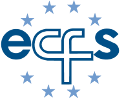| Clinical trials identifier | NCT01946412 |
|---|---|
| Study codes | VX11-770-109 |
| Study title | A Phase 3, 2-Arm, Roll-Over Study to Evaluate the Long-term Safety and Pharmacodynamics of Ivacaftor Treatment in Pediatric Subjects With Cystic Fibrosis and a CFTR Gating Mutation |
| Sponsor | Vertex |
| Drug (brand name) | Ivacaftor (Kalydeco) |
| Drug administration | Tablets taken by mouth |
| Eligible CF patients | Aged under 6 years old, at least one a CFTR gating mutation, finished feeder study |
| Controlled study? | No |
| Randomised study? | No |
| Blinded study? | No |
| Extension study? | Yes (feeder study: VX11-770-108, NCT01705145) |
| Study timeframe | The study was conducted between December 2013 and December 2015. |
RESULTS
| What does this mean for me? | In children with CF aged 2-6 years, who have at least one gating mutation (G551D, G178R, S549N, S549R, G551S, G1244E, S1251N, S1255P, G1349D), ivacaftor appears very effective, as already demonstrated in older children and adults with these mutations. Sweat chloride improved by approximately 50mmols on average. Weight and Body Mass Index improvements were maintained. Safety seems generally good, although liver function tests are likely to need monitoring in clinical practice as some children (about 15%) had elevated liver function tests. Pancreatic function (as measured by faceal elastase) improved in some children – the clinical significance of this finding requires more studies. |
|---|---|
| Study: | This Phase 3 trial was conducted in 16 sites in 2 countries (USA and UK). |
| Aim: | To assess the long-term safety and pharmacodynamics of ivacaftor treatment in CF patients younger than 6 years of who have a CFTR gating mutation in at least 1 allele and will further explore the efficacy of long-term ivacaftor treatment. |
| Participants: | 33 participants were enrolled. There were 3 participants from 1 ECFS-CTN sites in the UK. |
| Treatment: | Participants were treated every 12 hours with ivacaftor 50 milligram (mg) or 75 mg or 150 mg based on body weight and age. For analysis, patients were grouped by the treatment they received during the feeder study (VX11-770-108) – either ivacaftor 50 mg or 75 mg. |
| Safety: | All patients had at least 1 AE; 9 of the patients had previously been treated with ivacaftor 50 mg during the feeder study (VX11-770-108) and 24 had been treated with ivacaftor 75 mg. The most common AE was cough, reported by 8/9 patients previously been treated with ivacaftor 50 mg during the feeder study (VX11-770-108) and 16/24 previously treated with ivacaftor 75 mg. In total, 11 patients had serious adverse events; 6 of these patients had previously been treated with ivacaftor 50 mg during the feeder study (VX11-770-108) and 5 had previously been treated with ivacaftor 75 mg. |
| Efficacy: | Improvements in sweat chloride were observed up to the end of the feeder study (VX11-770-108) were sustained in the extension study. |
| Data source: | The summary of data provided here is from a registry posting, available here: https://clinicaltrials.gov/ct2/show/results/NCT01946412?sect=X987015#more |
